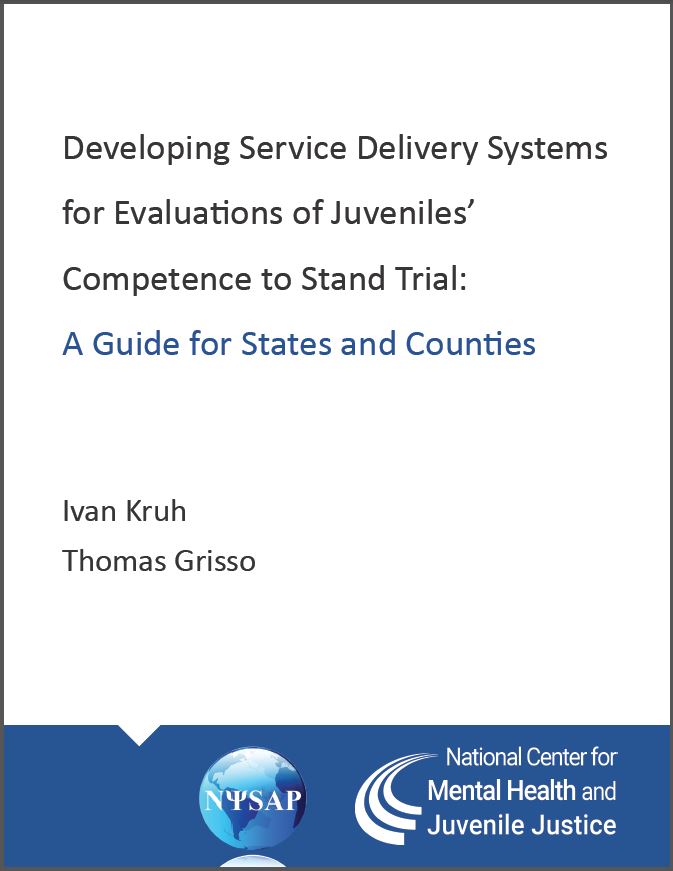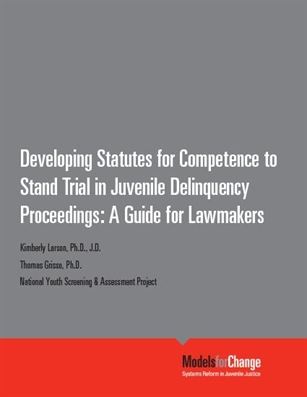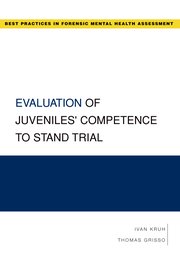The demand for forensic evaluations of juveniles’ competence to stand trial (CST) has increased rapidly in recent years. Many states have adopted new statutes and requirements for evaluating and adjudicating juveniles’ CST. This has increased the need for consultation and training of clinical and legal professionals on this topic, as well as the need for the support of effective decision making by mental health and juvenile justice administrators. NYSAP offers the following services to meet your needs in this area. NYSAP professionals have played a key role nationwide for 25 years in research on juveniles’ CST and developing standards for juveniles’ CST for forensic clinical practice, law and policy.
We provide the following types of consultation related to implementation and proficiency in best practices in CST evaluations to forensic and mental health systems:
NYSAP offers a variety of relevant trainings. Some are for clinicians who perform juvenile competence to stand trial (CST) evaluations and others for those who need to understand such evaluations. Most trainings are also available with remote technology. For a complete list of trainings, please check our training page.
On-demand trainings are available addressing the following topics:
Consultation to assist state/county mental health and juvenile justice administrators to develop policies and procedures for providing juvenile CST evaluations. Issues include: system organization; court-to-evaluator referral; developing a professional evaluation workforce; setting evaluation standards; and determining the system’s needs for clinician training. NYSAP professionals have developed Guides for juvenile CST systems development:
 Developing Service Delivery Systems for Evaluations of Juveniles’ Competence to Stand Trial: A Guide for States and Counties (2017)
Developing Service Delivery Systems for Evaluations of Juveniles’ Competence to Stand Trial: A Guide for States and Counties (2017)
Ivan Kruh, Ph.D. and Thomas Grisso, Ph.D.
 Developing Statutes for Competence
to Stand Trial in Juvenile Delinquency Proceedings: A Guide for Lawmakers (2012)
Developing Statutes for Competence
to Stand Trial in Juvenile Delinquency Proceedings: A Guide for Lawmakers (2012)
Kimberly Larson, J.D., Ph.D. and Thomas Grisso, Ph.D.
We can provide asset mapping for courts to support appropriate referrals for youth in need of competency assessment and restoration and highlight areas for community capacity development. This process has two aims: to support appropriate referrals to effective resources based on areas of need identified in competency evaluations and support capacity building to improve competency restoration services in the local community.
Consultation to develop an internal process for monitoring the quality of clinicians’ juvenile CST evaluations and reports, assuring best-quality evaluations for the courts on a continuing basis.
A process by which samples of juvenile CST reports can be submitted by clinicians for review by NYSAP professionals, who then provide detailed written feedback based on national best-practice standards. NYSAP professionals have published two of the nation’s leading guides for standards in this area:
 Evaluation of Juveniles' Competence to Stand Trial
Evaluation of Juveniles' Competence to Stand Trial
Ivan Kruh, Ph.D. and Thomas Grisso, Ph.D
.png) Community-Based
Remediation of Juvenile Competence to Stand Trial: A National Survey (2022)
Community-Based
Remediation of Juvenile Competence to Stand Trial: A National Survey (2022)
Ivan Kruh, Neil Gowensmith, Amanda Alkema, Kristin Swenson & Derrick Platt
.png) Functional Deficits in Juveniles Evaluated for Adjudicative Competence (2022)
Functional Deficits in Juveniles Evaluated for Adjudicative Competence (2022)
Christina L. Riggs Romaine